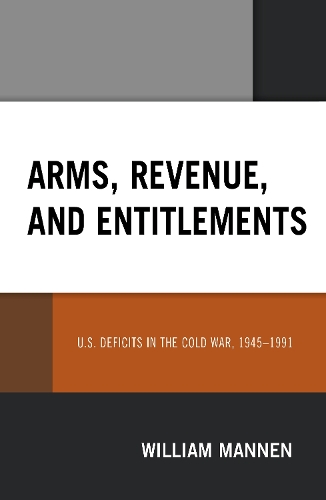
Arms, Revenue, and Entitlements: U.S. Deficits in the Cold War, 1945-1991
(Hardback)
Publishing Details
Arms, Revenue, and Entitlements: U.S. Deficits in the Cold War, 1945-1991
By (Author) William Mannen
Bloomsbury Publishing PLC
Lexington Books
2nd July 2020
United States
Classifications
Professional and Scholarly
Non Fiction
Warfare and defence
336.340973
Physical Properties
Hardback
198
Width 160mm, Height 239mm, Spine 22mm
476g
Description
In the second half of the twentieth century, strategic and economic conditions compelled the U.S. government to start running budget deficits on a permanent basis. A new role of global leadership in containing communism required a robust military establishment. The government overwhelmingly relied for general revenue on an income tax code that also could not impede economic growth. And general revenue increasingly funded transfer payments in an expanding entitlement state. Fiscal overstretch resulted in unending deficits which continue to this day. At first the shift to deficit normality was not obvious. The Truman and Eisenhower Administrations attempted to hold the line on deficits, but this commitment gradually weakened in later years. Arms, Revenue, and Entitlements: 1945-1991 looks at the Cold War era from a budgetary perspective, how defense spending, income tax reductions, and entitlement programs all contributed to the emergence of the deficit normative state. As national debt continues to climb in the twenty-first century, Arms, Revenue, and Entitlements: U.S. Deficits in the Cold War, 1945-1991 shows how the government reached this point, and how a comprehensive policy approach might again restore fiscal stability.
Reviews
"William Mannen has provided a balanced, first-rate story of American economic policy during the Cold War from Truman to Bush. The author captures the century's complexities and how American policymakers adapted to the geopolitical changes shaping the contours of the tension-filled Cold War. No student of American twentieth-century political and economic history should be without this well-researched and indispensable study: a must-read. "--Jeffery Cook, North Greenville University
Author Bio
William Mannen is independent scholar.
